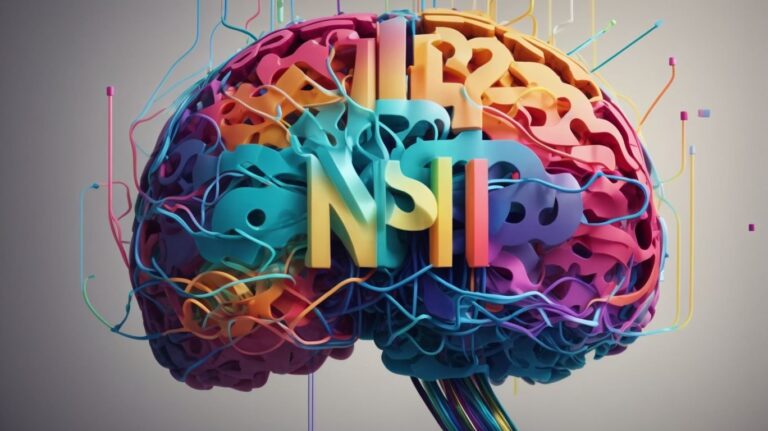Have you ever wondered what it means to achieve self-actualization? This article delves into the fascinating history and evolution of this concept in psychology.
From the origins of the term to the characteristics of self-actualized individuals, we explore the role of self-actualization in humanistic and positive psychology. Discover how you can work towards self-actualization by identifying your values, practicing self-awareness, and embracing your unique qualities. Join us on this journey of personal growth and development.
Contents
- 1 Key Takeaways:
- 2 What Is Self-Actualization?
- 3 The History of Self-Actualization
- 4 The Characteristics of Self-Actualized Individuals
- 5 The Role of Self-Actualization in Psychology
- 6 How to Achieve Self-Actualization?
- 7 Frequently Asked Questions
- 7.1 What is the concept of self-actualization in psychology?
- 7.2 How is self-actualization related to Maslow’s hierarchy of needs?
- 7.3 What are the characteristics of self-actualized individuals?
- 7.4 Can anyone achieve self-actualization?
- 7.5 How does self-actualization contribute to mental health?
- 7.6 What are some strategies for promoting self-actualization?
Key Takeaways:
1. Self-actualization is the process of fulfilling one’s potential and achieving personal growth.
2. The concept of self-actualization was coined by Abraham Maslow and has evolved over time.
3. Characteristics of self-actualized individuals include autonomy, authenticity, creativity, and problem-solving skills.
What Is Self-Actualization?
Self-actualization, a concept rooted in humanistic psychology and popularized by Abraham Maslow, refers to the realization of one’s full potential and the journey towards personal growth and psychological well-being.
According to Maslow’s hierarchy of needs, self-actualization stands at the top of the pyramid, indicating its significance as the ultimate goal for individuals seeking fulfillment.
The theory suggests that only after fulfilling basic needs such as food, safety, love, and esteem, can one strive for self-actualization. Viktor Frankl, influenced by Maslow, further emphasized the importance of finding meaning and purpose in life to achieve self-actualization.
The History of Self-Actualization
The historical roots of self-actualization can be traced back to the works of pioneers in humanistic psychology such as Abraham Maslow, Kurt Goldstein, and Carl Rogers, who explored the concept within the framework of personal growth and psychological well-being.
Abraham Maslow, known for his hierarchy of needs theory, emphasized the importance of fulfilling basic physiological needs before progressing to higher levels of self-actualization.
Kurt Goldstein, with his holistic perspective on human nature, focused on individual uniqueness and the role of the organism in shaping behavior.
Carl Rogers, a prominent figure in client-centered therapy, emphasized the significance of self-concept and unconditional positive regard in fostering self-actualization.
Together, their contributions have shaped our understanding of human potential and the journey towards personal fulfillment.
Who Coined the Term ‘Self-Actualization’?
The term ‘self-actualization’ was coined by Abraham Maslow, a prominent figure in the field of humanistic psychology, to describe the pinnacle of human development and fulfillment.
Self-actualization represents the realization of one’s full potential, the actualization of talents, and the pursuit of personal growth beyond basic needs satisfaction.
Maslow’s hierarchy of needs theory places self-actualization at the top, suggesting that individuals strive for self-actualization once their physiological, safety, love, and esteem needs are fulfilled.
This concept emphasizes the intrinsic motivation behind personal growth and the importance of self-awareness, creativity, problem-solving abilities, and a sense of autonomy in achieving one’s highest potential.
The Evolution of the Concept of Self-Actualization
The concept of self-actualization has evolved over time, moving beyond Maslow’s original theories to encompass a broader understanding of human potential, personal growth, and psychological well-being.
Self-actualization, first introduced by psychologist Abraham Maslow, is considered the pinnacle of his hierarchy of needs. It involves individuals striving to reach their full potential and attain a sense of fulfillment. Today, this concept has been further explored by psychology and philosophy, highlighting the diverse aspects of self-realization. This can include finding purpose, nurturing creativity, building meaningful connections, and continuously growing as a person.
The Characteristics of Self-Actualized Individuals
Self-actualized individuals exhibit a unique set of characteristics including authenticity, creativity, compassion, and autonomy, reflecting a deep sense of fulfillment and personal growth.
Authenticity plays a pivotal role in the lives of self-actualized individuals, enabling them to express their true selves without pretense or falsehood. This genuine nature fosters deep connections with others and allows them to navigate life with honesty and integrity.
Creativity is another cornerstone of their being, as they approach challenges with innovative solutions and see the world through a lens of artistic expression. Compassion flows naturally from their empathetic hearts, driving them to make a positive impact on the world around them.
Their autonomy grants them the freedom to pursue their passions and values without being bound by external expectations, leading to a life guided by their own intrinsic motivations.
Autonomy
Autonomy, a fundamental aspect of self-actualization, give the power tos individuals to make independent choices, embrace their individuality, and cultivate spontaneity in their personal growth journey.
By allowing individuals to take ownership of their decisions and actions, autonomy plays a crucial role in shaping a sense of self-reliance and responsibility.
When individuals have the freedom to follow their inner desires and beliefs, it fosters a deep sense of authenticity and uniqueness. This freedom from external constraints enables them to explore their interests, passions, and values, leading to a more fulfilling and purposeful life.
Embracing autonomy also encourages individuals to adapt to change and challenges with resilience and creativity, ultimately contributing to their overall well-being.
Authenticity
Authenticity, a hallmark of self-actualization, involves embracing one’s true self, aligning actions with values, and fostering genuine relationships based on acceptance and congruence.
Acceptance plays a pivotal role in this process, as it entails acknowledging and appreciating oneself without judgments or the need for approval from others.
When individuals accept themselves for who they truly are, they can then live in harmony with their values, thoughts, and actions, leading to a sense of inner peace and fulfillment.
Congruence is equally significant, as it refers to the alignment between one’s internal beliefs and outward behaviors.
When one’s words and actions align with their core values, they exude an aura of authenticity that is palpable to others, fostering deeper connections and trust in relationships.
Creativity
Creativity plays a vital role in self-actualization, allowing individuals to express their unique perspectives, foster innovation, and experience personal growth and fulfillment through artistic or intellectual pursuits.
When an individual engages in creative activities, whether it’s painting, writing, composing music, or problem-solving in a unique way, imagination and self-expression come into play.
The process of tapping into one’s imagination can lead to a deeper understanding of oneself and the world around them, sparking new ideas and pushing boundaries of conventional thinking. This exploration not only fuels personal growth but also contributes to broader societal progress by introducing fresh perspectives and innovative solutions.
Problem-Solving Skills
Possessing strong problem-solving skills is essential for self-actualization, as individuals navigate challenges, seek innovative solutions, and experience personal growth through overcoming obstacles.
Critical thinking plays a crucial role in problem-solving, enabling individuals to analyze situations, identify root causes, and generate effective strategies for resolution.
By honing these skills, one can adapt to unexpected circumstances, refine decision-making processes, and contribute to the creation of inventive solutions.
Problem-solving abilities not only enhance one’s capabilities to overcome hurdles but also foster a sense of accomplishment, resilience, and self-confidence, key elements in the journey towards self-actualization.
The Role of Self-Actualization in Psychology
Self-actualization holds a central position in psychology, particularly within Maslow’s Hierarchy of Needs and the humanistic approach, emphasizing the pursuit of peak experiences and holistic well-being.
Self-actualization, as proposed by Abraham Maslow, represents the highest level of psychological development. It is where individuals strive to realize their full potential and achieve personal growth beyond basic needs. This concept delves into the intrinsic motivation for self-improvement, creativity, and the desire for authenticity in one’s life.
Within Maslow’s Hierarchy of Needs, self-actualization stands atop the pyramid. This suggests that individuals can only reach this state once lower-level physiological, safety, belonging, and esteem needs are fulfilled.
The humanistic perspective heavily influences the concept of self-actualization. It views individuals as inherently good and driven by the need for personal growth and fulfillment.
Maslow’s Hierarchy of Needs
Maslow’s Hierarchy of Needs outlines a pyramid of human needs, culminating in self-actualization and self-transcendence, encompassing cognitive and aesthetic needs beyond the basic physiological and safety requirements.
The progression towards self-actualization in Maslow’s theory involves reaching the peak of personal growth, where individuals strive to fulfill their utmost potential and pursue intrinsic goals.
Self-transcendence, the final stage in the hierarchy, goes beyond personal fulfillment, focusing on connections with a broader reality and embracing a sense of connection and understanding that surpasses self-interest.
In this context, cognitive needs relate to intellectual stimulation, curiosity, and the desire for knowledge, while aesthetic needs involve appreciation for beauty, creativity, and artistic expression.
Humanistic Psychology
Humanistic psychology underscores the significance of self-actualization, emphasizing positive regard, congruence, autonomy, and compassion as essential elements in fostering holistic well-being and mental health.
Self-actualization, a key concept in humanistic psychology, refers to the realization of one’s full potential and authenticity. This journey towards self-fulfillment involves embracing personal growth, pursuing meaningful goals, and finding fulfillment in relationships.
Positive regard, as advocated by psychological luminaries like Carl Rogers, underscores the importance of acceptance, empathy, and understanding towards oneself and others.
Congruence, or the alignment between inner thoughts and outward behavior, plays a crucial role in promoting mental wellness. When individuals exhibit authenticity and transparency in their interactions, they experience a sense of harmony and integrity.
Positive Psychology
Positive psychology delves into the exploration of strengths, values, passions, and self-actualization to enhance individual well-being, focusing on personal growth, fulfillment, and the realization of one’s potential.
This approach places emphasis on leveraging an individual’s unique qualities and talents to give the power to them to reach their highest level of functioning.
By identifying and nurturing strengths, individuals are encouraged to pursue their passions, aligning their actions with their core values.
Self-actualization, a central concept in this framework, refers to the process of realizing one’s full potential, leading to a deep sense of satisfaction and meaning in life.
Through self-awareness and embracing their strengths, individuals can navigate their weaknesses and turn them into opportunities for growth.
How to Achieve Self-Actualization?
Achieving self-actualization involves identifying personal values and goals, engaging in introspection and self-reflection, pursuing continuous growth and development, and embracing one’s unique qualities for fulfillment.
Identifying personal values and goals is the foundational step towards self-actualization. This process involves understanding what truly matters to you and what drives your actions and decisions.
Introspection and self-reflection play a crucial role in gaining clarity about your aspirations and areas for improvement. Continuously pushing boundaries and striving for personal growth challenges you to reach your full potential.
Embracing your unique qualities, strengths, and quirks creates a sense of authenticity and allows you to live a life aligned with your true self.
Identify Your Values and Goals
To embark on the journey of self-actualization, individuals must first identify their core values and establish meaningful goals that align with their unique strengths and weaknesses.
Understanding one’s core values serves as the compass guiding decisions, actions, and priorities towards a fulfilling life.
Clarity on personal values enables individuals to create a life that is authentic to their true selves, fostering a sense of purpose and direction.
Setting goals that are in harmony with these values ignites motivation and propels individuals towards growth and success.
Recognizing both strengths and weaknesses is crucial, as it allows for leveraging strengths to overcome challenges and working on weaknesses to further personal development.
Practice Self-Awareness and Self-Reflection
Self-actualization requires a commitment to self-awareness and regular self-reflection, fostering introspection, enhancing mental health, and promoting overall well-being.
Self-awareness acts as a mirror, allowing individuals to understand their emotions, thoughts, and behaviors in a deeper way. By being conscious of one’s own strengths, weaknesses, and values, a person can make informed decisions aligned with their true self.
This internal clarity not only aids in resolving conflicts but also boosts self-confidence and resilience. Self-reflection serves as a tool for growth, enabling individuals to learn from past experiences and chart a course for the future.
Through introspective practices such as journaling or mindfulness, people can cultivate a deeper understanding of themselves and their aspirations, paving the way for personal fulfillment and self-actualization.
Pursue Personal Growth and Development
Continuous pursuit of personal growth and development is essential for self-actualization, enabling individuals to realize their full potential, enhance well-being, and achieve lasting fulfillment.
Through the process of continuous self-improvement, individuals can expand their horizons, challenge existing limitations, and cultivate a mindset focused on progress and innovation.
Embracing personal growth involves a willingness to step out of comfort zones, embrace change, and adapt to new circumstances with resilience and determination. This journey towards self-actualization give the power tos individuals to tap into their innate strengths, explore new opportunities, and forge deeper connections with themselves and others, fostering a sense of purpose and fulfillment.
Embrace Your Unique Qualities and Individuality
Embracing one’s unique qualities and individuality is a key aspect of self-actualization, allowing individuals to align with their values, pursue their passions, and unlock their true potential for growth.
When individuals embrace what makes them stand out and differentiate themselves in a world filled with diversity, they open the door to authentic self-discovery and fulfillment.
This journey of self-actualization not only fosters personal development but also contributes to a richer tapestry of collective experiences. By valuing their distinct perspectives and talents, individuals enhance their ability to contribute meaningfully to society and connect with others on a deeper level.
Frequently Asked Questions
What is the concept of self-actualization in psychology?
The concept of self-actualization in psychology refers to the process of reaching one’s full potential and achieving personal growth and fulfillment in life. It is a central concept in humanistic psychology, which focuses on individual growth and self-improvement.
Self-actualization is the highest level on Maslow’s hierarchy of needs, which is a theory that explains the different levels of human needs. Once the basic physiological and safety needs are met, individuals strive for self-actualization, which involves realizing their full potential and achieving personal growth.
What are the characteristics of self-actualized individuals?
Self-actualized individuals exhibit certain characteristics, including self-awareness, spontaneity, problem-solving skills, acceptance of themselves and others, and a strong sense of purpose and meaning in life. They are also creative, independent, and have a deep appreciation for life.
Can anyone achieve self-actualization?
According to Maslow, self-actualization is a goal that all individuals strive for, but not everyone reaches it. Factors such as environment, upbringing, and personal experiences can influence the likelihood of achieving self-actualization. However, it is a continuous process, and individuals can continue to work towards it throughout their lives.
How does self-actualization contribute to mental health?
Self-actualization is closely linked to mental health as it involves fulfilling one’s potential and achieving personal growth. When individuals are able to fulfill their needs and reach their full potential, they are more likely to experience a sense of fulfillment, happiness, and overall well-being.
What are some strategies for promoting self-actualization?
Some strategies for promoting self-actualization include setting and achieving personal goals, practicing self-reflection and mindfulness, pursuing hobbies and interests, and surrounding oneself with positive and supportive individuals. Seeking therapy and personal development can also be helpful in the journey towards self-actualization.



